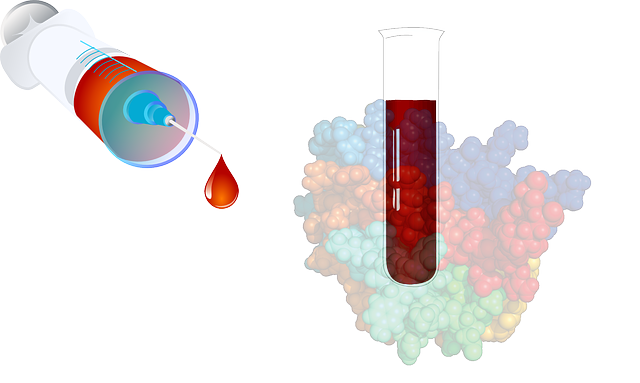Iron deficiency anemia, a common yet often overlooked blood disorder, can be detected early through the UK cholesterol blood test, which measures ferritin and hemoglobin levels. This allows for timely interventions like dietary changes and supplements, preventing severe symptoms such as fatigue, weakness, and dizziness. Regular screening is vital for managing and preventing anemia, especially in vulnerable populations. After receiving abnormal test results, healthcare providers offer tailored treatments, from lifestyle adjustments to intravenous infusions, with ongoing monitoring through follow-up blood tests.
In the UK, iron deficiency anaemia (IDA) is a common health concern, impacting individuals across all demographics. This condition arises from inadequate iron levels in the blood, leading to fatigue, weakness, and other symptoms. Fortunately, early detection through simple blood tests can make a significant difference. This article explores how these tests play a crucial role in identifying IDA, understanding its impact, interpreting test results, and discussing available treatments, empowering individuals with knowledge for proactive health management.
- Understanding Iron Deficiency Anemia and its Impact
- How Blood Tests Help in Detecting Iron Deficiency
- Interpreting Results and Available Treatment Options
Understanding Iron Deficiency Anemia and its Impact
Iron deficiency anemia is a common blood disorder where the body doesn’t have enough healthy red blood cells to carry adequate oxygen to the body’s tissues. This can lead to fatigue, weakness, pale skin, shortness of breath, and dizziness—symptoms often overlooked but significantly impacting daily life. It’s particularly concerning as it can develop silently over time, affecting individuals without them knowing until a UK cholesterol blood test or other routine check reveals low iron levels.
In the UK, where access to healthcare is readily available, early detection through a simple blood test can make all the difference. By identifying anemia early on, medical professionals can prescribe appropriate treatments such as dietary changes, iron supplements, or, in severe cases, blood transfusions or medication to stimulate red blood cell production. Regular screening, especially for at-risk groups like young women, children, and older adults, is crucial in managing and preventing the adverse effects of iron deficiency anemia.
How Blood Tests Help in Detecting Iron Deficiency
Blood tests play a crucial role in detecting iron deficiency anemia, offering valuable insights into an individual’s overall health and nutritional status. These tests are particularly important as iron deficiency is a common yet often overlooked nutrient deficit, especially in populations with limited access to balanced diets or certain demographic groups at higher risk. By analyzing the blood, healthcare professionals can identify key markers associated with iron levels.
One standard approach is through a UK cholesterol blood test, which evaluates various parameters. In this context, ferritin levels are of significant interest; low ferritin concentration strongly suggests iron deficiency. Additionally, hemoglobin (Hb) levels, measured during a full blood count (FBC), can indicate anemia and provide further evidence of iron depletion. These tests enable timely intervention and appropriate treatment strategies to restore iron balance in the body.
Interpreting Results and Available Treatment Options
Interpreting Results & Treatment Options
Once your UK cholesterol blood test results are back, your healthcare provider will discuss them with you. The key measure for iron deficiency anemia is ferritin levels; anything below 12-15 micrograms per liter (mcg/L) indicates potential anemia. If the result is abnormal, further tests might be needed to confirm the diagnosis and rule out other underlying conditions.
Treatment options depend on the severity of your anemia but typically involve addressing the iron deficiency. This could include dietary changes to increase iron intake, taking oral iron supplements, or receiving intravenous iron infusions in more severe cases. Regular follow-up blood tests are important to monitor ferritin levels and ensure successful treatment.
Iron deficiency anemia is a common yet manageable condition, especially when detected early. Blood tests, such as those used in the UK cholesterol blood test, play a pivotal role in identifying iron levels and guiding appropriate treatment. By understanding the implications of low iron and interpreting test results accurately, individuals can take proactive steps to improve their overall health and well-being.
